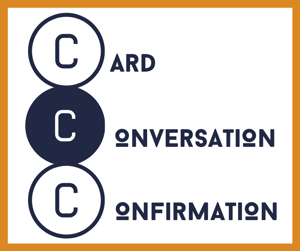For many professionals who have seen the value that Agile brings to the table, becoming an Agile coach is the next logical step in their career path. If you have benefitted from the knowledge and experience of an Agile coach, then you know that this is a role that values the following sentiment:
“Give a man a fish and you feed him for a day. Teach a man to fish and you feed him for a lifetime.”
- Old Chinese Proverb
So what does an Agile coach do, exactly?
There are various roles that an Agile coach plays during the transformation process; he/she brings Agile knowledge, experience and thinking to all of the coaching they do with individuals and teams.
When an Agile coach first starts working with a client, the most important first step is to understand their business. What are the goals, business drivers and the company environment? It’s critical to have or quickly gain situational context.
As coach, even if you are an internal employee, you may not necessarily have the entire background and context around specific projects but the value that you bring is your ability to think in an agile way, as well as your experience. But remember that you are not there to solve Agile problems; rather your role is to empower individuals and teams to solve their own problems.
There are four key ways in which Agile coaches may “teach someone to fish,” and your role over time may include any or all of the following:
- Coaching: maximizing personal and professional potential for teams
- Mentoring: working with individuals and teams as they perform their roles
- Teaching: introducing new concepts via workshops and training
- Consulting: fixing problems (really, a last resort because you are doing the work for them which is not as effective)
How does the coaching role match up to Agile team players?
Mentoring scrum masters often comes with the role of Agile coach, especially as it relates to facilitation. And then there are times when coaches serve as product owners while also identifying strong internal product owners who can take over those roles effectively.
When specific requests are made, the goal of the Agile coach is to bring the work back to coaching by learning what’s behind the request. What is the company trying to achieve and what is the most effective way that you can enable them to achieve it themselves via mentoring or coaching? How can you help them become more self-sufficient?
Maximizing Your Agile Coaching ROI – Return on Involvement
As an Agile coach, your work with individuals is the investment and we advise you to try not to do the work directly. The same goes for “advising” and “pushing” ideas on the client.
It’s much more impactful to serve as a facilitator, mentoring and teaching. Beyond that, you can look at consulting as a last resort.
The Agile Transformation work really “belongs” to those you are coaching. If you locate individuals internally who have strong delegation skills, for example, consider empowering these team members to become scrum masters and encourage self-directed learning.
By encouraging people to try something – experimenting and using self-directed learning – they will begin to become self-reliant and shift to Agile behaviors. They will take ownership of this transformation because they have begun to achieve it through implementation. And it’s the Agile coach’s job to maximize this awareness.
How to Become an Agile Coach With Certification
So if you are interested in formally pursuing certification, ICAgile has many different tracks ranging from enterprise to management to testing. To meet the Agile coach requirements, there are various steps which must be taken to achieve expert coach certification. However, each step does also come with its own unique certification.
The ICAgile coaching track has four components:
- Successful completion of Agile Fundamental training
- Successful completion of Agile Team Facilitation training (ICP-ATF)
- Successful completion of Agile Coaching training (ICP-ACC)
- Apply to become an Expert in Agile Coaching (ICE-AC)
Eliassen Group offers many different Agile coach training opportunities which can help you to become an Agile Coach! Specific to the ICAgile Coaching track, Eliassen Group offers workshops which combine learning, discussion and experiential group-based exercises specific to meeting both the facilitation (ICP-ATF) and coaching requirements (ICP-ACC).



